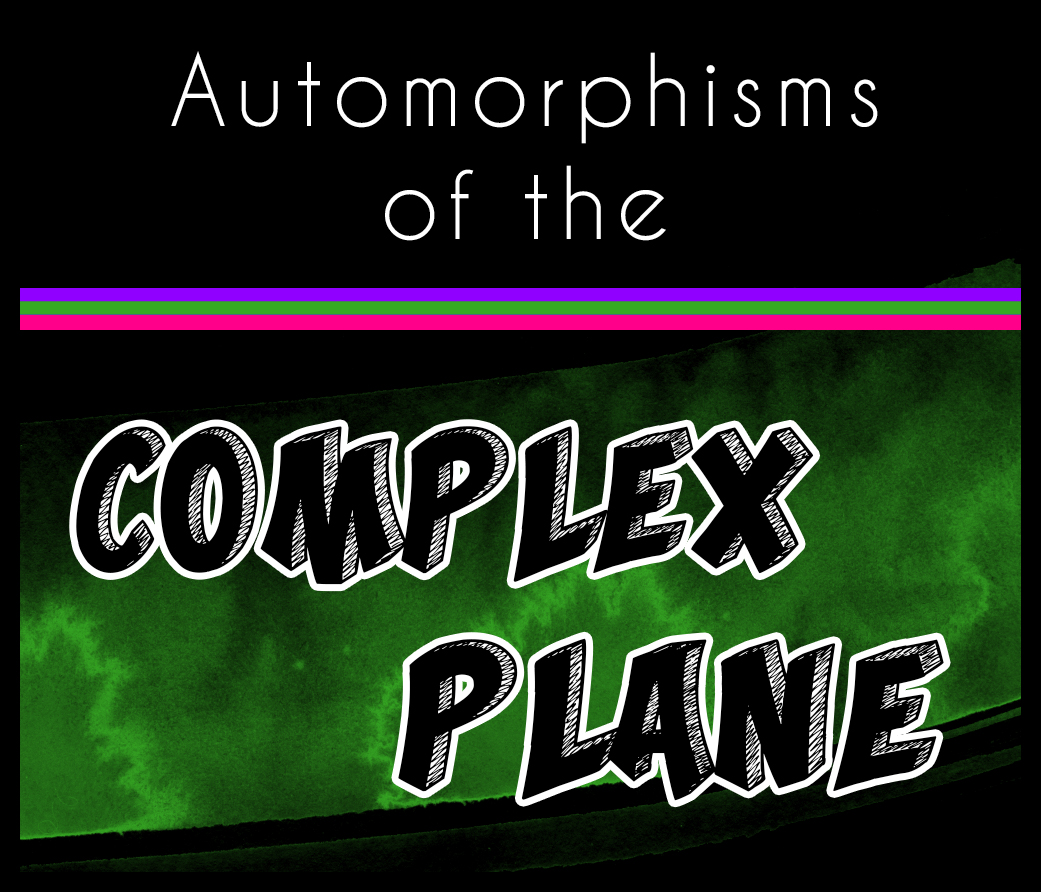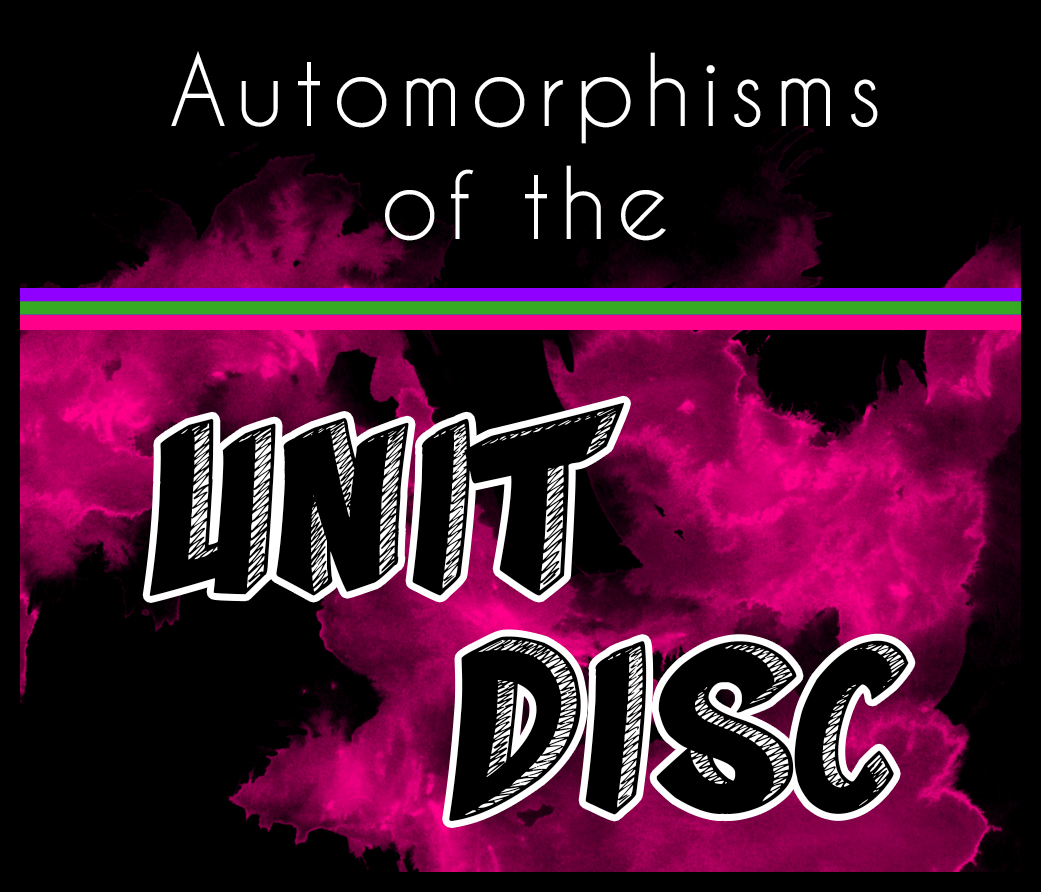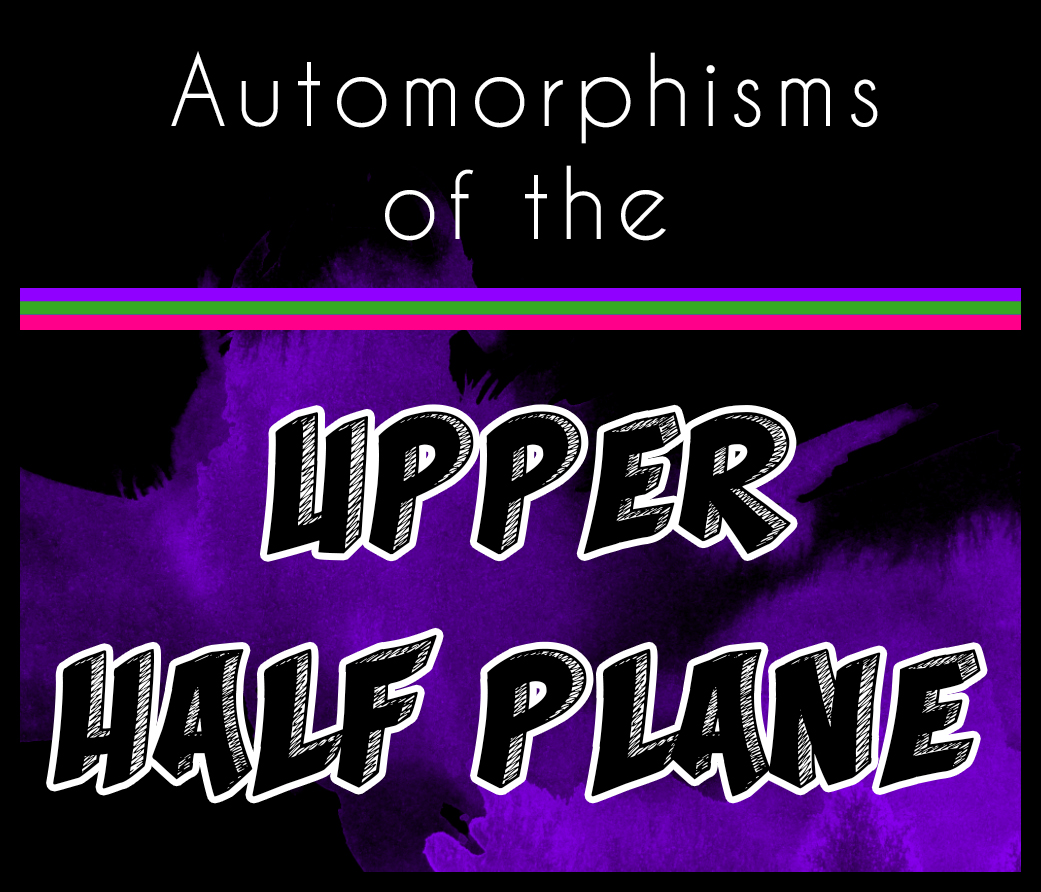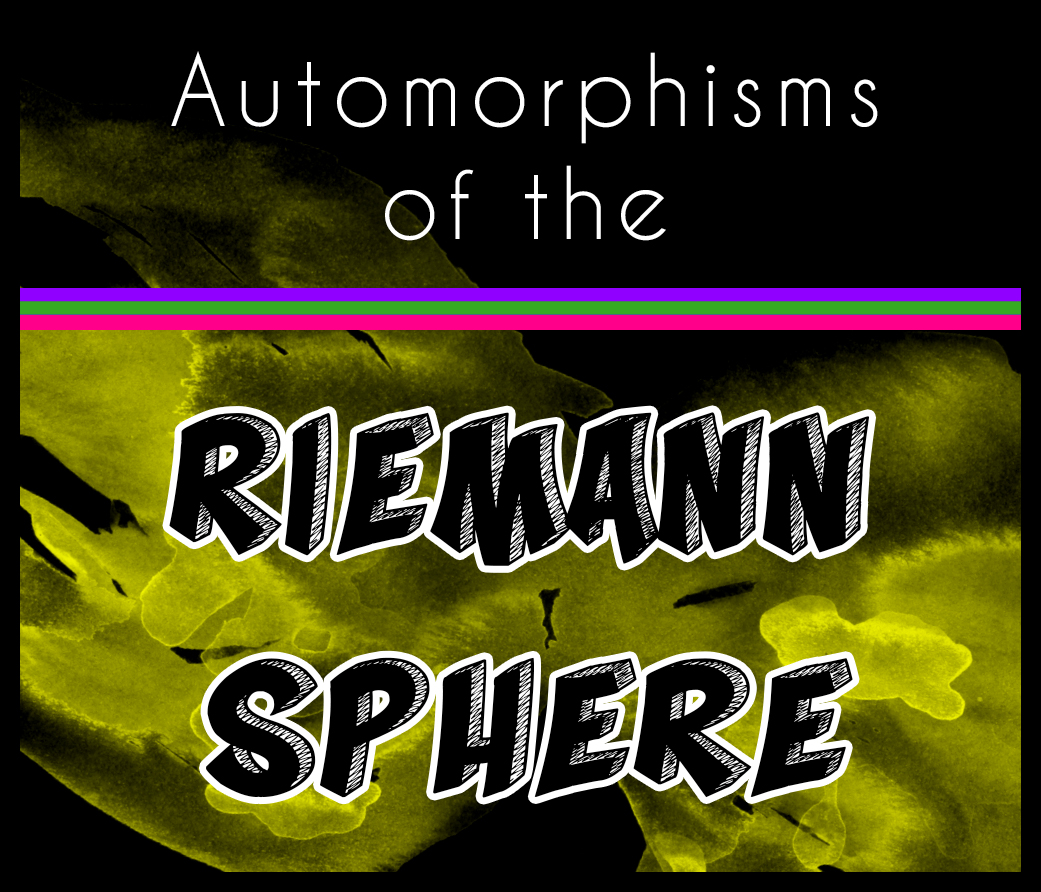Automorphisms of the Complex Plane

Welcome back to our little series on automorphisms of four (though, for all practical purposes, it's really three) different Riemann surfaces: the unit disc, the upper half plane, the complex plane, and the Riemann sphere. Last time, we proved that the automorphisms of the upper half plane take on a certain form. Today, we'll prove a similar result about automorphisms of the complex plane. Unlike last week's post (which was purely computational), today's proof will require two major results - or "big guns" as my professor used to say - namely the Casorati-Weierstrass theorem and the open mapping theorem.
If you missed the introductory/motivational post for this series, be sure to check it out here!
Also in this series:



Automorphisms of the Complex Plane
Theorem: Every automorphism $f$ of the complex plane $\mathbb{C}$ is of the form $f(z)=az+b$ where $a,b\in\mathbb{C}$ and $a\neq 0$.
Proof. We'll start with the easy direction first. Note that if $f(z)=az+b$ for $a,b\in \mathbb{C}$ with $a\neq 0$, then $f$ maps from $\mathbb{C}$ to $\mathbb{C}$ and $f^{-1}(z)=\frac{z-b}{a}$. Thus $f$ is indeed an automorphism of $\mathbb{C}$. (Both $f$ and $f^{-1}$ are holomorphic since they're simply linear maps!)
For the other direction, we need a little lemma:
Lemma: Suppose $f$ is an injective, holomorphic function on the punctured unit disc $\Delta^\times:\{z\in\mathbb{C}:0< |z| < 1 \}$. Then $0$ cannot be an essential singularity of $f$.
Proof. Let $z$ be a point in $\Delta^{\times}$ and let $B_1$ and $B_2$ be disjoint open balls containing $0$ and $z$, respectively, and suppose to the contrary that $0$ is an essential singularity of $f$. Then by the Casorati-Weierstrass theorem, $f(B_1\smallsetminus\{0\})$ is dense in $\mathbb{C}$. In particular, since $f(B_2)$ is open by the open mapping theorem, we must have $f(B_1\smallsetminus\{0\})\cap f(B_2)\neq \varnothing$. In other words, there exist nonzero $z_0\in B_1$ and $w_0\in B_2$ such that $f(z_0)=f(w_0)$. Since $f$ is injective, it follows that $z_0=w_0$. This of course contradicts our assumption that $B_1\cap B_2=\varnothing$. $\square$
Now suppose $f$ is an automorphism of $\mathbb{C}$ so that $f$ has a power series expansion $f(z)=a_0+a_1z+a_2z^2+\cdots$ and define $g(z)=f(1/z)=a_0+\frac{a_1}{z}+\frac{a_2}{z^2}+\cdots$. Then $g$ is both holomorphic and injective on the punctured disc $\Delta^\times$ and so by our lemma $g$ cannot have an essential singularity at $0$. Thus there is a nonnegative integer $m$ such that $a_n=0$ for all $n>m$ and so $f$ must be a polynomial of degree $m$. But $f$ is injective by assumption. Hence $f$ must have degree 1, that is, $f(z)=a_0+a_1z$ with $a_1\neq 0$.
$\square$
Next time: We'll prove a similar result about the automorphisms of the Riemann sphere.
